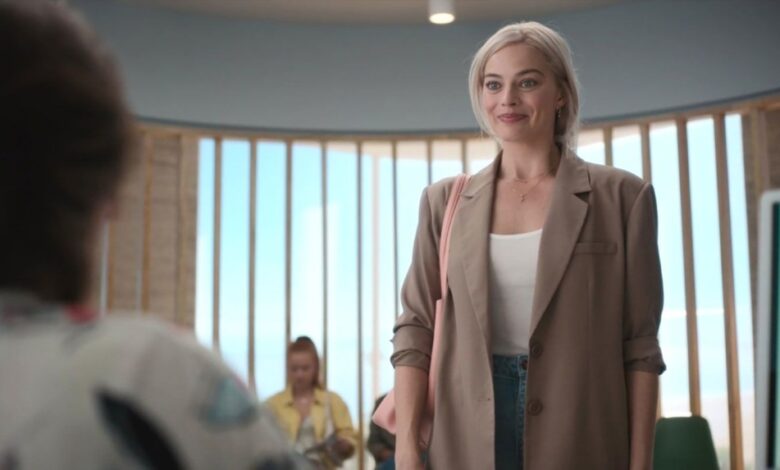Barbie helped spike interest in gynecologists: study

When she leaves Barbie Land for the real world, Barbie must keep up with her regular health maintenance, which includes seeing her gynecologist.
A new study published Thursday in the journal JAMA Network Open has found that the ending in the 2023 blockbuster film “Barbie” had an influence on online search interest in terms around gynecology, the branch of medicine that deals with women’s reproductive health.
By analyzing 34 search queries related to understanding gynecologic care, the study authors had found that in the week following the film’s release in July 2023, there was about a 51 per cent increase of searches for “gynecologist” and “gynecology.” The researchers also looked at the influence for the search of “gynecologist definition” combined with related queries like “What does a gynecologist do?” The category had overall fewer searches than “gynecologist” and “gynecology,” but it saw a 154 per cent increase when compared with definition searches from the previous week.
References in pop culture can influence health behaviours among the public, such as when former “Today” host Katie Couric live streamed her colonoscopy in 2000, which was found to increase colonoscopies by 21 per cent shortly after, and Angelina Jolie published an essay on having breast cancer, which led to a 64 per cent increase in genetic testing, the authors note in the study. Those examples and others inspired the researchers to look into the “Barbie” effect on interest in women’s reproductive health.
“By making these topics seem less abstract, scary or intimidating, by just alluding to them in movies and things that people consume in their everyday lives, it will also help people be more aware of something that women deal with in their everyday lives,” said Eva Sénéchal, lead study author and a graduate student researcher at McGill University in Montreal.
Looking into the search trends for the term “gynecologist appointment,” the researchers found there was no difference when compared with the previous week, meaning there was no search volume associated with seeking care. But the authors noted that an increase in seeking gynecologic care may not be accurately captured in search trends.
“We don’t know if this is going to impact people getting appointments further down the line, because we don’t know who is searching for these things — but it’s possible that something like this will spark … the curiosity that leads women to be more proactive in a couple of years from now,” Sénéchal said.
Because the data was from public search engines, the authors do not know the demographics of the searchers. It’s possible that the searches were from people who don’t need gynecologic care, the authors note in the study.
“I can imagine a 12-year-old boy going to see this movie with his sister, and he’s never heard this term before. And maybe this is how he gets that motivation to learn about what it is,” Sénéchal said. “Even if you don’t need one, knowing things about women’s health is important for being a good friend, relative and partner to a woman. So I just think it’s great for public health literacy.”
Women’s health in pop culture
Dr. Nitu Bajekal, a senior consultant obstetrician and gynecologist based in London, said she did not notice an influx in gynecology appointments following the film’s release. But she was aware of a lot of chatter revolving the final scene.
“Raising awareness is the first step,” said Bajekal, who was not involved in the study. “I know that from many of the situations where celebrities and movies talk about important health issues, there is an uptick in people researching it, and you never know who it might actually help.”
After being dropped off by her newfound family — who had cheered her on, saying “You got this” and “I’m really proud of you!” — Barbie exuberantly tells the receptionist she is there to see her gynecologist in the final scene.
“When somebody in the popular culture is actually smiling and looking happy when saying, ‘I’m here to see my gynecologist,’ to me, that is a positive note rather than somebody coming in looking really fearful,” said Bajekal, who is the author of the upcoming book “Finding Me in Menopause: Flourishing in Perimenopause and Menopause using Nutrition and Lifestyle.” “Going to the gynecologist should not be filled with feelings of doom and gloom.”
Having more references to women’s reproductive health could help people feel more comfortable talking about the topic as well as to remind them of the importance of keeping up with regular health appointments, Bajekal said.
“Obstetrician-gynecologists play a critical role in the health and lives of more than half of the population throughout their lifetimes,” said Kate Connors, senior director of public affairs for the American College of Obstetricians and Gynecologists, in an email.
“It’s great that pop culture phenomena like the Barbie movie can help more people learn about how important ob-gyn care is and, importantly, become more comfortable talking about receiving that care,” she added.
If Barbie can do it, so can you
In a July 2023 interview, “Barbie” director Greta Gerwig told USA Today that the scene was an attempt to “give girls that feeling of, ‘Barbie does it, too.’”
“When I was a teenage girl, I remember growing up and being embarrassed about my body, and just feeling ashamed in a way that I couldn’t even describe. It felt like everything had to be hidden,” Gerwig said.
The American College of Obstetricians and Gynecologists recommends a first visit with an obstetrician-gynecologist between the ages of 13 and 15. A Pap test, a type of cervical cancer screening, is recommended for those 21 and older.
Dr. Heather Irobunda, a board-certified ob-gyn and a physician at New York City Health and Hospitals Corporation, recommends that those who are nervous to meet with a gynecologist make a first appointment as just a get to know you session. She was not involved in the research.
“You can ask, ‘What exactly does an on-gyn exam entail? What are we doing today?’ Because we should be able to answer all those questions for you,” she said, “and you should feel empowered that you know what’s going to happen to your body.”
Irobunda also didn’t notice an increase in gynecology appointments, but she said it could be possible that people who watched the film were at least reminded that they may be due for a check-in or a screening with their doctor.
“I feel like (the scene) starts the conversation — anything that starts the conversation about reproductive health tends to cause folks to want to explore that and go in and take a look at what they should be doing about their own health,” Irobunda said.
“When (Barbie) became a human, she was able to take control of her own life, and the first thing she did was take care of her reproductive health, which I think is really cool.”




